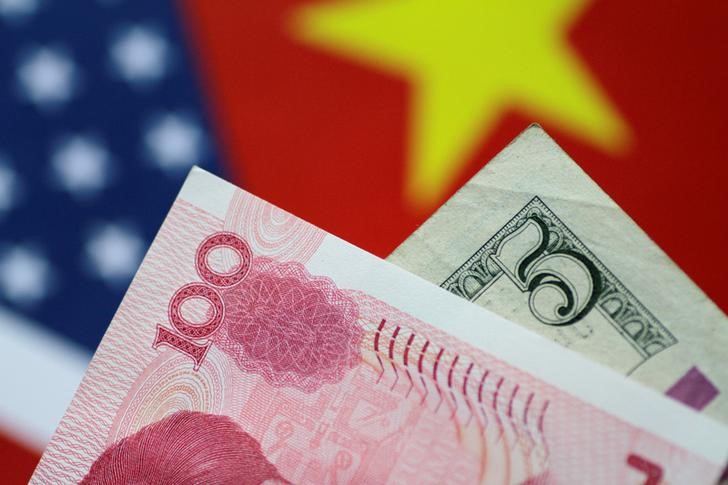
Purchasing managers index (PMI) data from China showed little improvement in business activity through February, indicating that a recovery in Asia’s largest economy remained sluggish.
This notion kept sentiment towards regional currency markets on edge, even as traders began pricing in a slightly higher chance of U.S. rate cuts after overnight inflation data.
The Chinese yuan fell 0.1% on Friday and remained in sight of recent three-month lows.
Official PMI data showed China’s manufacturing sector shrank for a fifth straight month in February. The weak reading largely offset data showing some improvement in non-manufacturing activity, although this increase was largely due to higher consumer spending during the Lunar New Year holiday- a trend which may peter out in the coming months.
A separate, private survey showed China’s manufacturing sector expanded in February. But the official reading indicated that China’s biggest manufacturing firms remained under pressure from weak local and overseas demand.
The dollar index and dollar index futures both fell slightly in Asian trade on Friday, but retained a bulk of their overnight gains after data showed inflation eased as expected in January.
The PCE price index– the Federal Reserve’s preferred inflation gauge- cooled in January, but remained well above the central bank’s annual inflation target.
“Owing to the rapid fall in PCE measured inflation in Q4 last year, there is some scope for temporary slippage in the data and the Fed can still be on track to cut rates this summer. However, if the data stay strong through March, the Fed may have to revisit for how long rates will need to stay high,” analysts at ANZ wrote in a note.
The CME Fedwatch tool showed traders were still pricing in an over 30% chance for a hold in June, along with a 56% chance the Fed will cut rates by 25 basis points.
Most other Asian currencies were muted on Friday. The Japanese yen relinquished all of its gains on Thursday, trading back above the 150 level as the prospect of higher for longer U.S. rates largely overshadowed any early rate hikes by the Bank of Japan.
The Australian dollar rose 0.3% after clocking two days of losses, as investors bet that the Reserve Bank will not raise interest rates any further.
Focus was also on key fourth-quarter GDP data due next week.
The Singapore dollar was flat, while the Indian rupee extended mild gains from Thursday after data showed Indian GDP grew much more than expected in the December quarter, underscoring India’s position as the fastest growing major economy.
To read the full article, Click Here
